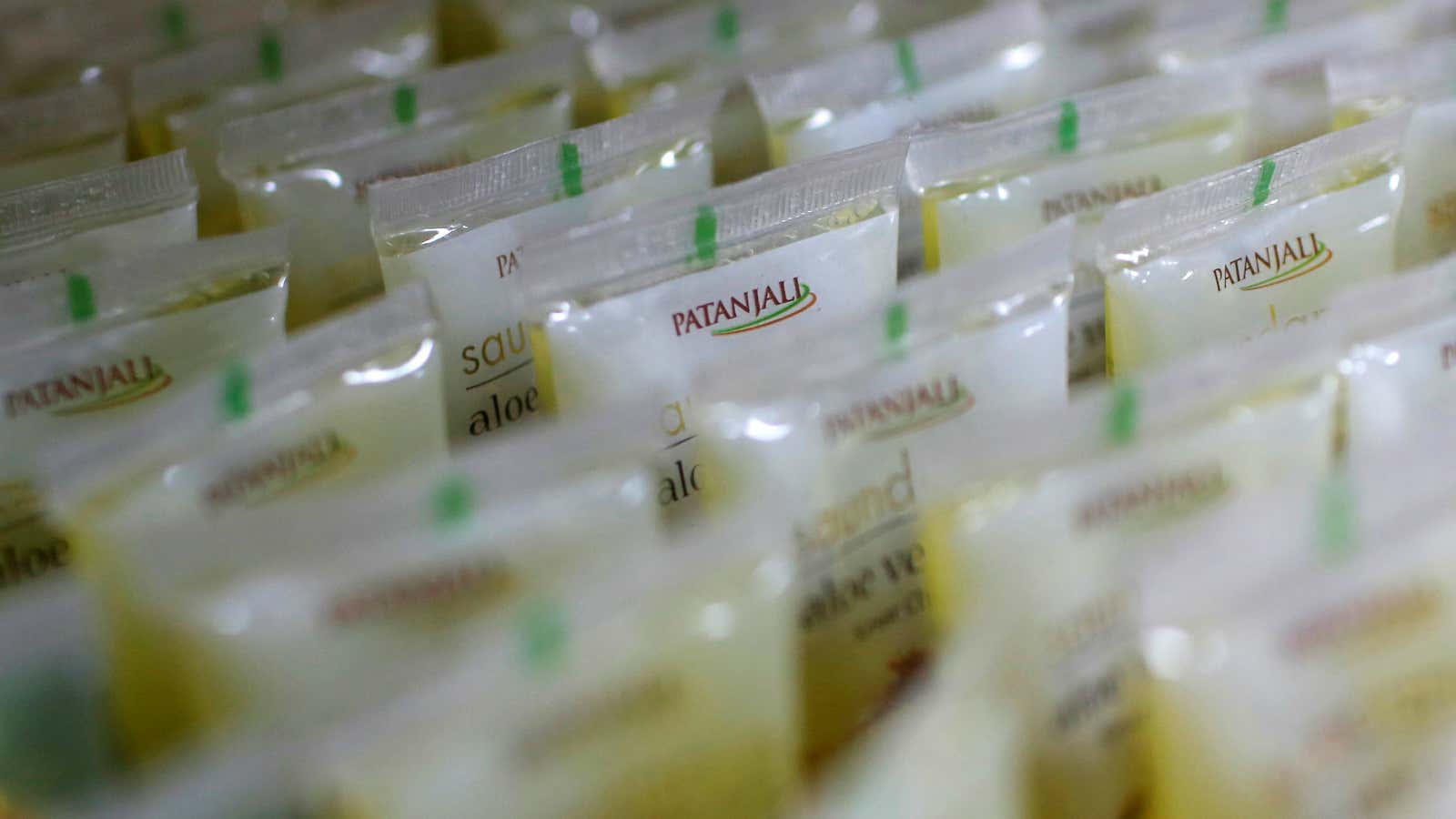Patanjali is in need of some deft yoga moves.
After disrupting India’s consumer goods market over the last few years, sales seem to be sputtering at the ayurveda goods major which has of late made a killing from herbal toothpaste, soaps, and detergents.
It closed the financial year 2018 with revenues at the same level as the previous year, managing director Acharya Balkrisha told the Mint newspaper. The company had earlier announced its plan to double its turnover to Rs20,000 crore in financial year 2018, up from the Rs10,500 crore it clocked in 2017.
“Lingering effects of demonetisation and the implementation of goods and services tax (GST) impacted growth,” Balkrisha told Mint in the interview published on May 18. “Besides, we invested our energy in developing infrastructure and supply chain during the year. This year, we focused on system development, and not just revenue growth.”
Since its entry into the market in 2009, Patanjali has upended India’s fast-moving consumer goods (FMCG) sector and reignited demand for natural and herbal-based products. With a strong marketing narrative built around selling indigenous goods and dismissing produce sold by “foreign” firms, Patanjali did brisk business and rapidly scaled its portfolio. It currently sells 1,000 products spanning home care, personal care and packaged foods, and will soon launch apparel.
But growth now appears to be tapering off.
Battered by rising competition, a hefty portfolio, and roadblocks caused by the GST, which led to a change in pricing and de-stocking of products of daily use, Patanjali’s targets have been choked.
“While Patanjali did disrupt the market and forced existing companies to extend their herbal offerings, the business has reached a scale where doubling turnover will definitely be a challenge,” said Ankur Bisen, vice-president at consulting firm Technopak. Also, when Patanjali entered the market, the packaged ayurveda space was virgin, added Bisen, “existing companies hadn’t done much to leverage their brands.”
Not anymore.
Most consumer goods makers have bolstered their herbal offerings since. Hindustan Unilever, the country’s largest FMCG firm, bought ayurveda hair-care brand Indulekha in 2015. Last year, it launched its herbal personal care brand Ayush. In 2016, oral care company Colgate, too, launched a herbal toothpaste.
In any case, Patanjali’s GST and demonetisation claims don’t pass muster considering India’s top FMCG firms have ended the year with strong revenue growth. In fact, on average, sales across FMCG companies grew at 13.5% in 2018, the fastest in three years, according to data from insights agency Nielsen India.
It also didn’t help that Patanjali scaled its portfolio too quickly. Over the last few years, it flooded the market with new products, stretching itself across categories.
“While Patanjali was earlier able to milk its small base and focus on core products, as its business has grown, it needs a different kind of focus and distribution muscle to expand, especially with the biggies now competing with it in the market,” Bisen added.
